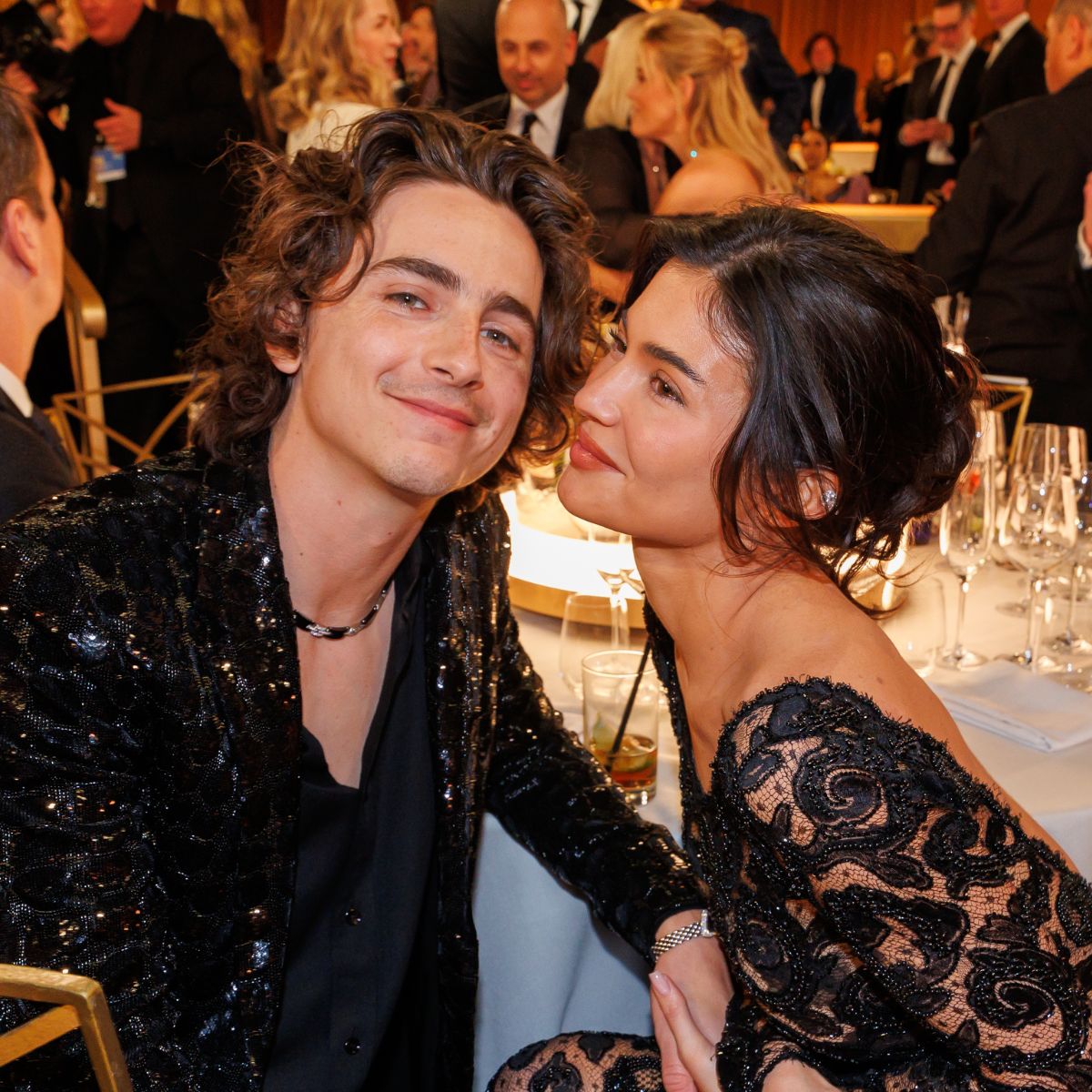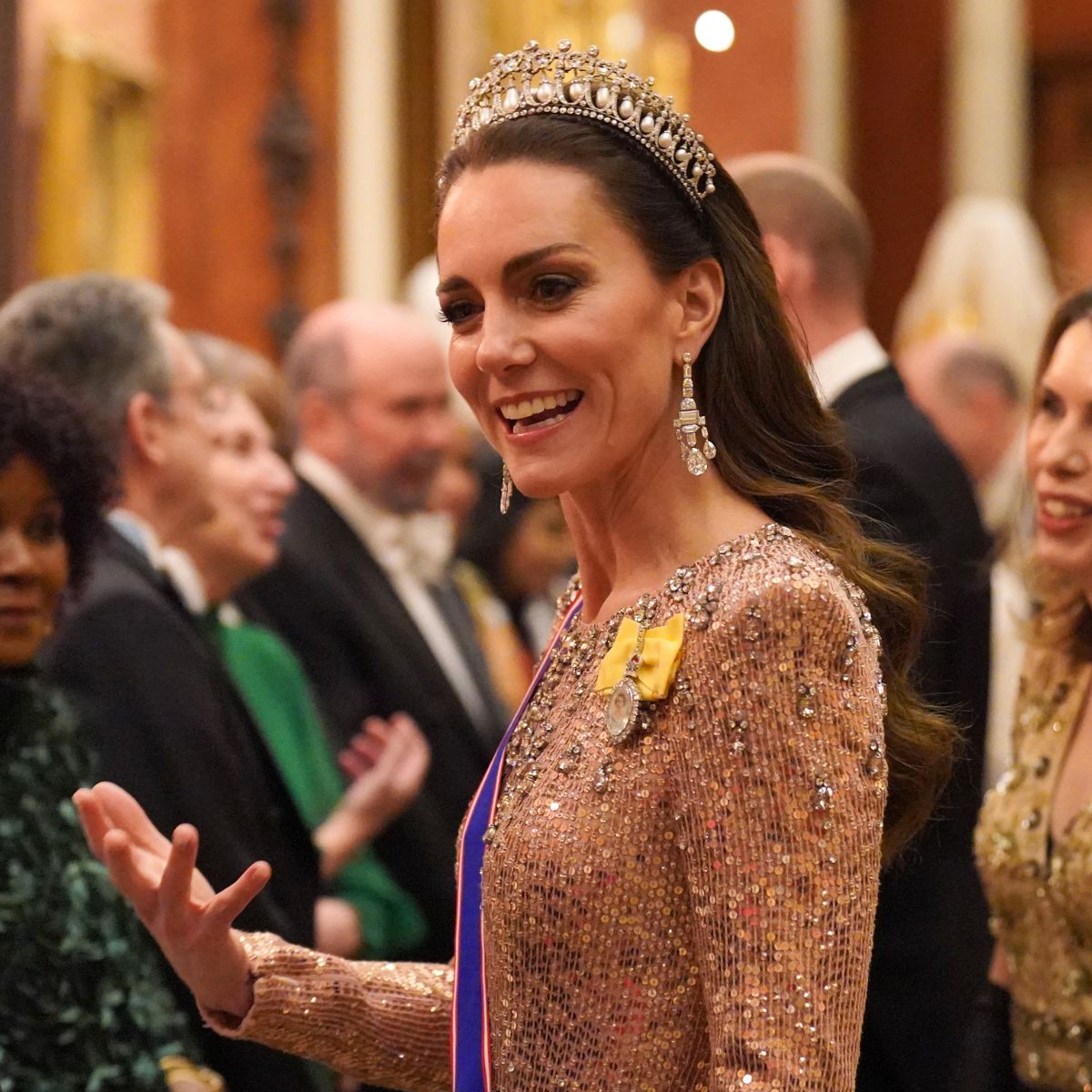Tried and Tested: I tried a totally virtual Tarot reading - would it convince me the spiritual practice was accurate?
Can cards really hold divine powers and make predictions about the future?
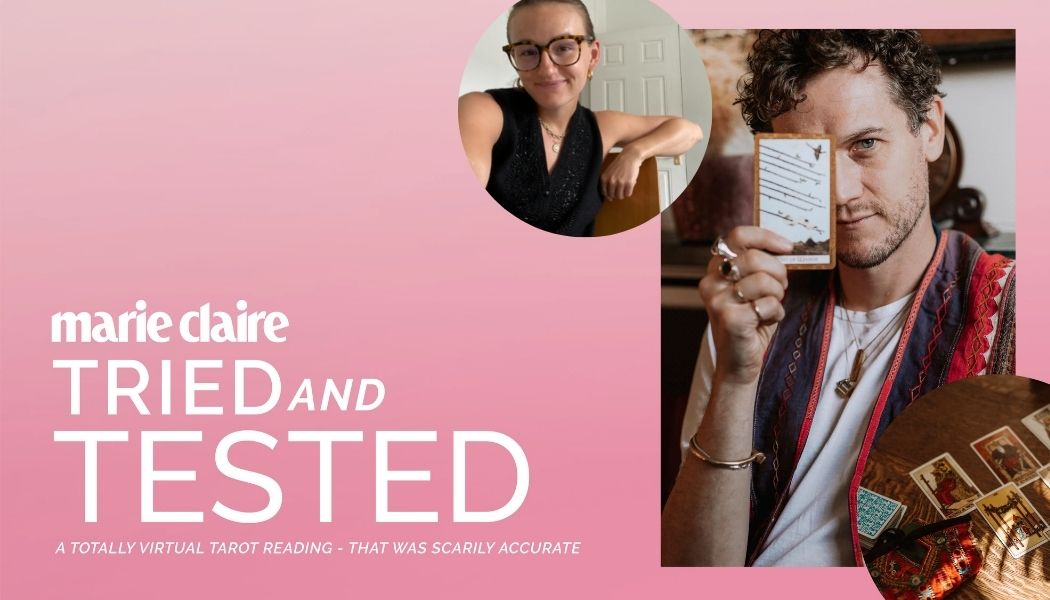
Can cards really hold divine powers and make predictions about the future?
Ever heard of tarot reading, or been curious to dabble in the mystic 15th century tradition?
Fun fact: I recently discovered that Christian Dior was famously a believer of Tarot, having tried the cards when his sister Catherine disappeared during the Second World War. So, when spiritual reader Fiongal Greenlaw, reader and founder of the Wellness Foundry reached out to offer me a reading, I was intrigued, but also a little sceptical.
I meditate and, while I'd say I'm spiritual - everything happens for a reason, right? - I never knew where I stood on the notion that a pack of cards could really hold any kind of divine power.
Still, I was curious to see what they had to say. All in the name of journalism...
I tried a totally virtual tarot reading - so, was it accurate?
What is a tarot reading?
According to Fiongal, tarot is a diagnostic tool a bit like an X-ray but, well, less medically-approved, which can give you clarity and insight into your present circumstance.
A reading promises to highlight what is currently unfolding in each aspect of your life, shares the spiritual healer, from your love life, career goals, life path and more.
Do note here: many incorrectly believe that Tarot is a tool for predicting the future. Fiongal's keen to stress that this isn't the case. "Although a Tarot reader does look at likely outcomes, it's more about the unfolding patterns of your current situation. One other way to describe the Tarot is like a mirror, reflecting back to you or the reader the unadorned truth of your reality – what is working for you and against you," he explains.
"Take what's helpful, leave what isn't," he stresses. "The help of an intuitive is only ever a suggestion - you always have to run it past your own intuition and instinct."
"I don't work as a fortune teller," he continues. "The future isn't fixed - it's always dependant on the actions, decisions and beliefs that we hold in the current moment playing out. Tarot can show you your opportunities, possibilities and probabilities," he continues.
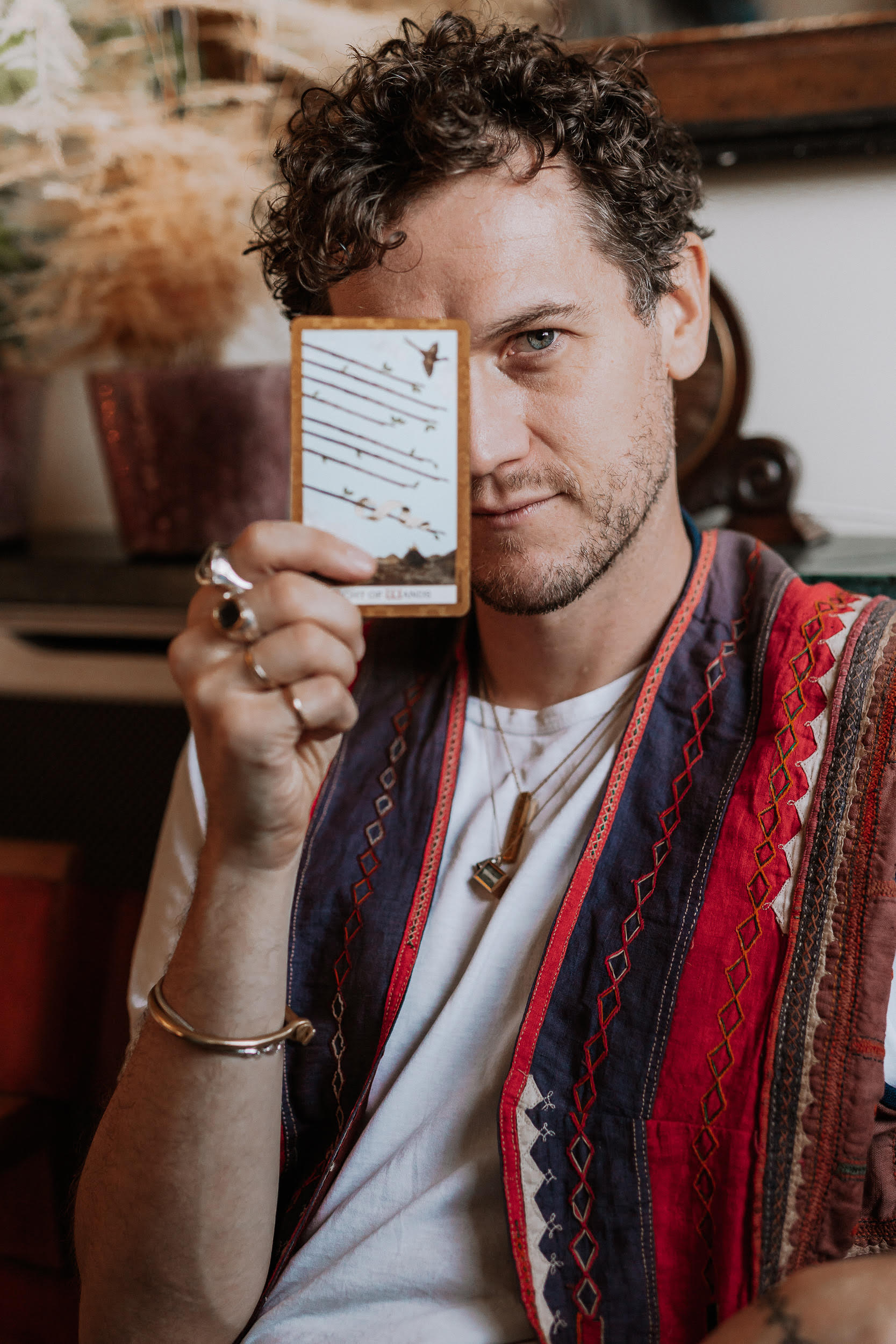
How does a Tarot reading work?
According to Fiongal, Tarot is a form of cartomancy, which is the divination through cards. "The history of the Tarot is as mysterious as the cards themselves and there is no definitive documentation of its origin," he shares. "Some believe it comes from Ancient Egypt, although there is no existing evidence of this."
But what about the fortune telling potential of the cards? "European and Asian Gypsies, or nomadic people, are accredited with first understanding the fortune-telling possibilities of the cards. They were known to be card-players and gamblers, but also experts in mysticism and magic," Fiongal explains.
The most common Tarot deck is the Rider-Waite deck of 1910, which Fiongal explains was created by members of the Hermetic Golden Dawn, illustrator Pamela Colman Smith and the academic A. E. Waite. "They were the first to put images with each of the Minor Arcana, making the deck very accessible and easier to read," he shares.
To get your Tarot read, it's as simple as booking an appointment with a spiritual reader or specialist. They will then pull between three and seven cards from the deck and purportedly help to guide you with insights from your past, present and future.
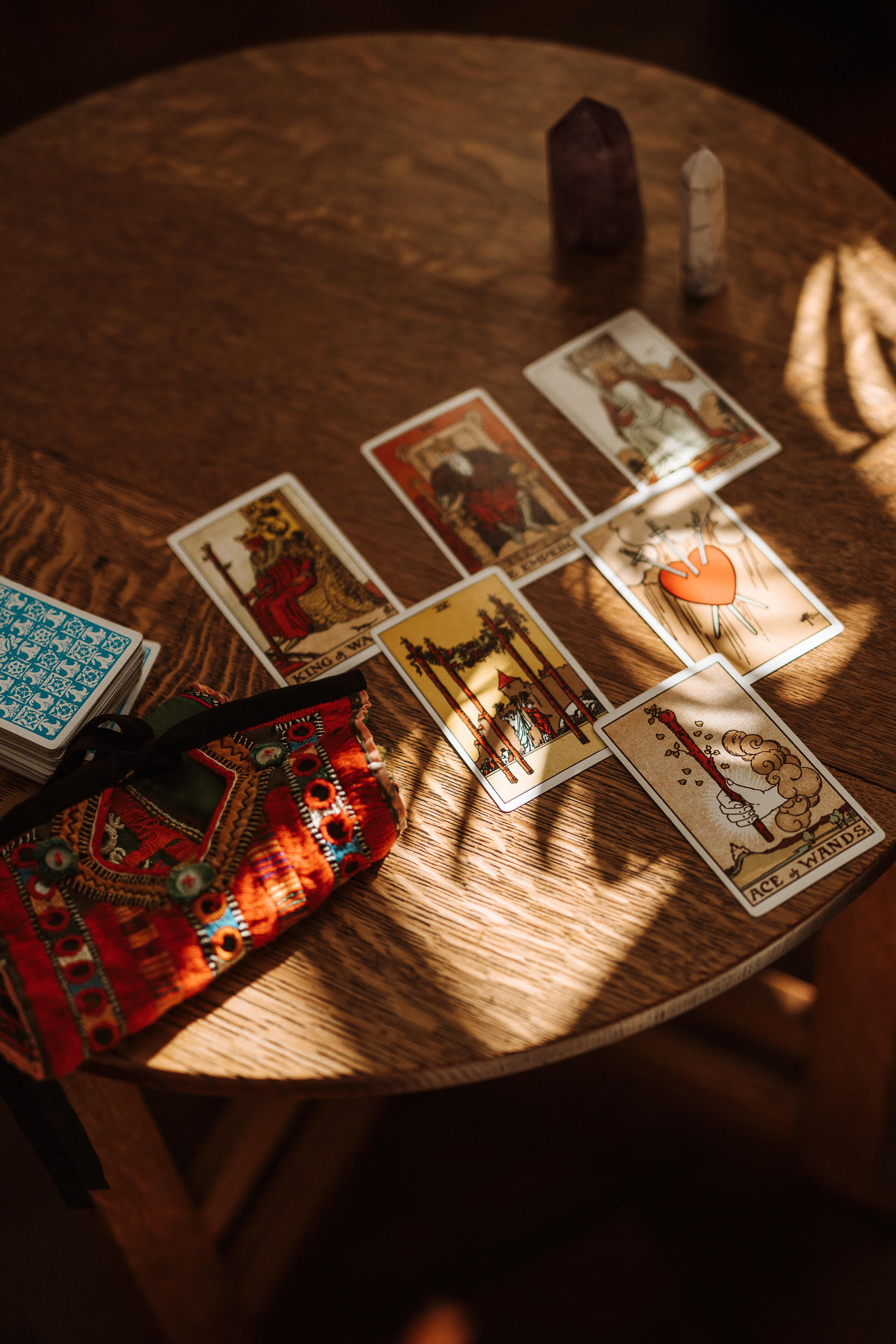
How much does a tarot reading cost?
Anything from £4.99 for a more basic 20 minute reading to £45 for a 30 minute The Wellness Foundry reading.
What did I think of my tarot reading - and was it accurate?
I was actually pretty nervous as Fiongal kicked off my reading. The 30-something spiritual healer chatted away casually as he shuffled the cards in ring-laden hands. What were the cards going to bring up and, well, was it foolish to think the healer was trying to read my mind?
Short answer, and as he explained: no. It's a common misconception, but his disclaimer was clear - that the cards don't really predict the future, per se, rather can guide your life choices, instead.
On with the reading. He drew a four of cups, eight of pentacles and a knight of wands and explained that each card has a different meaning. His job as a spiritual reader was to interpret what they mean about you.
A lot of the predictions were broad and covered my upcoming career opportunities and love life - while many of the predictions could apply to anyone, Fiongal did pick up on a few things that definitely - at least felt like - they related to me personally.
He spoke a lot about a conflict of personality between control and chaos - of half of me wanting to be spontaneous and fun, and the other half living for order, structure and routine. For anyone who knows me, you'll know that's pretty spot on.
Interestingly - and without me mentioning it - he asked me what my unfinished bit of training was. I told him that I'm currently half way through training for the London marathon - which, technically, I started last January, thanks to COVID - and am half way through completing my AfN nutrition course, too, which he couldn't have known.
My boyfriend and I are living through both renovations and a house move, and Fiongal spoke about being shown a crossroads and a tent - "it's obvious that you're moving," he explains. "The spirits are showing me a tent, which is about temporary living and housing, but they are also showing me a signpost, meaning you feel pulled in different directions".
Most surprisingly, he picked up on a car accident when I was younger which my parents had never told me about - "I keep coming back to a vision of a baby being strapped into the backseat of a car," he shared. Whether or not this is just sheer chance - well, I guess I'll never know.
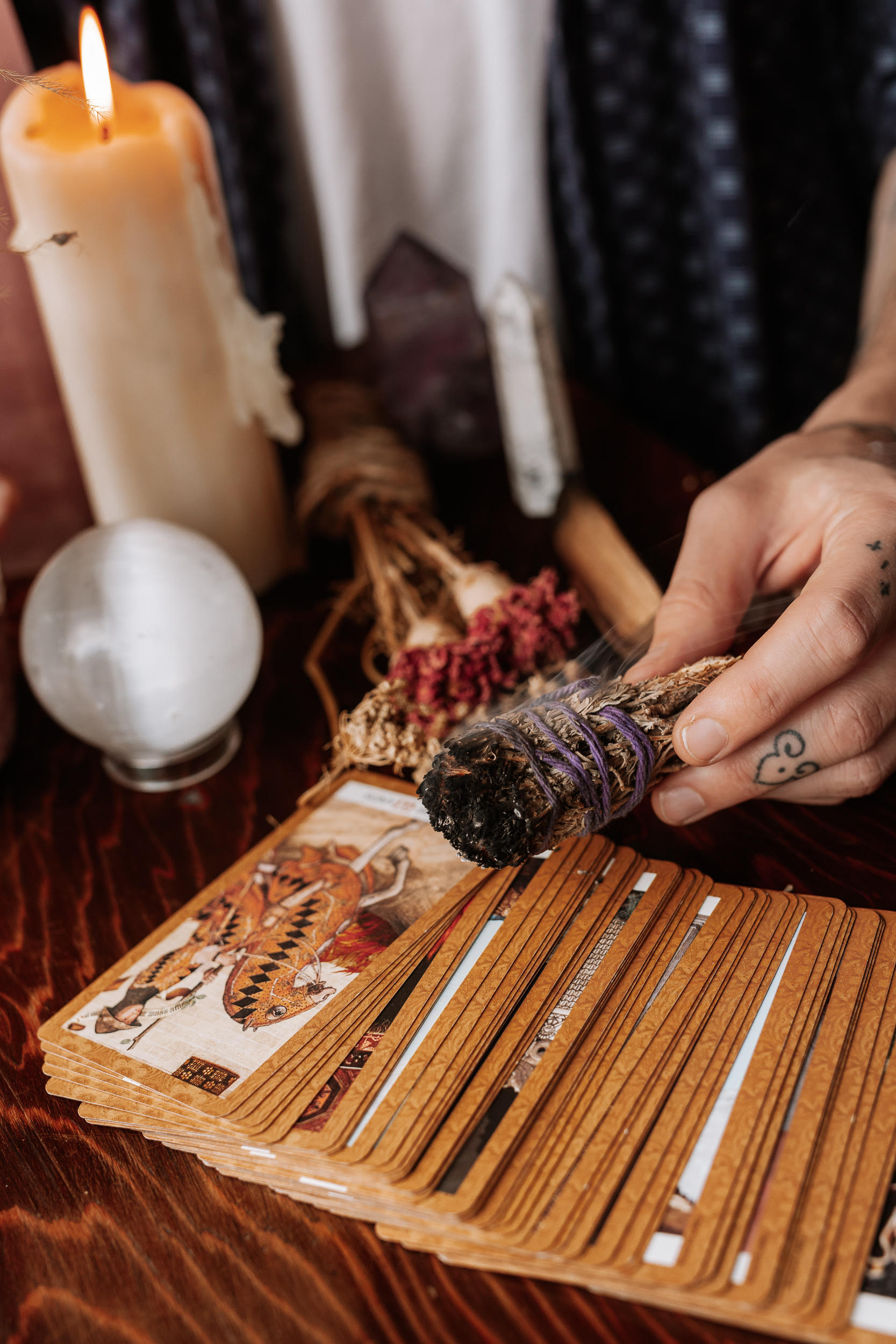
Was my tarot reading worth it? Final thoughts
Fiongal calls readings an 'energetic exchange', and compares it to a conversation. "Imagine meeting someone at a party and being very standoffish with them – it would be hardly surprising that the connection didn’t flow very well," he shares, and goes on to explain that a reading is the same. Keep an open mind and heart, he recommends - if you close yourself off from a possibility before even trying it, you could miss out, or so he says.
While I'm still on the fence about the spirituality and mysticism of Tarot, the reading was certainly a good way to encourage some introspective reflection. Looking back on the past year made me realise that it's not just me - thanks to the pandemic, most of the world is at a bit of a crossroads right now, and are likely working through it, too.
Whether you believe in Tarot or not, taking the hour with Fiongal to think about my career path, relationships and life goals was really quite cathartic. Checking in with myself and where I'm currently made me feel calm and focused, which I hadn't really expected.
As to the validity of his predictions - we'll see. But life would be pretty boring if you weren't open minded, huh?
Marie Claire Newsletter
Celebrity news, beauty, fashion advice, and fascinating features, delivered straight to your inbox!

Ally Head is Marie Claire UK's Senior Health and Sustainability Editor, nine-time marathoner, and Boston Qualifying runner. Day-to-day, she heads up all strategy for her pillars, working across commissioning, features, and e-commerce, reporting on the latest health updates, writing the must-read wellness content, and rounding up the genuinely sustainable and squat-proof gym leggings worth *adding to basket*. She also spearheads the brand's annual Women in Sport covers, interviewing and shooting the likes of Mary Earps, Millie Bright, Daryll Neita, and Lavaia Nielsen. She's won a BSME for her sustainability work, regularly hosts panels and presents for events like the Sustainability Awards, and is a stickler for a strong stat, too, seeing over nine million total impressions on the January 2023 Wellness Issue she oversaw. Follow Ally on Instagram for more or get in touch.
